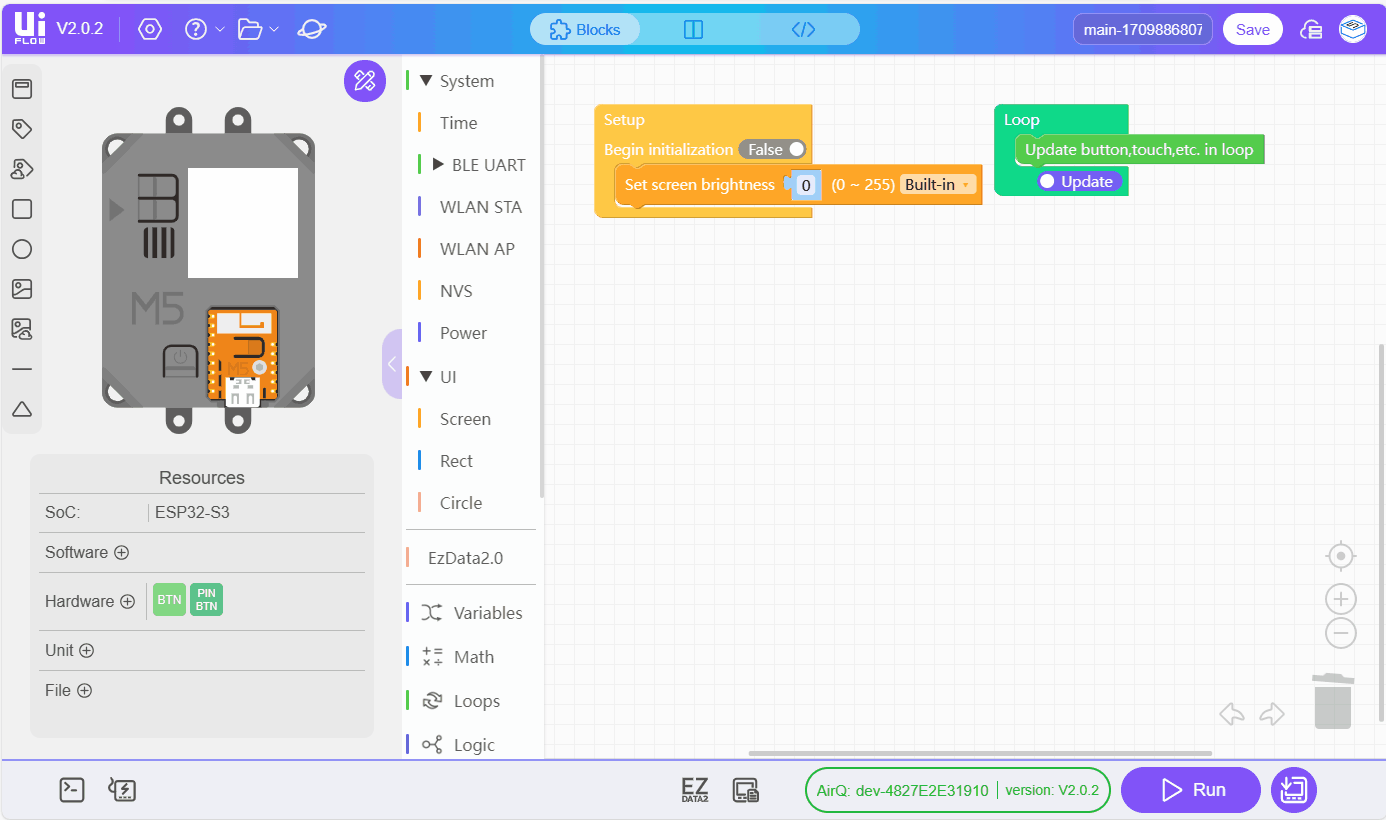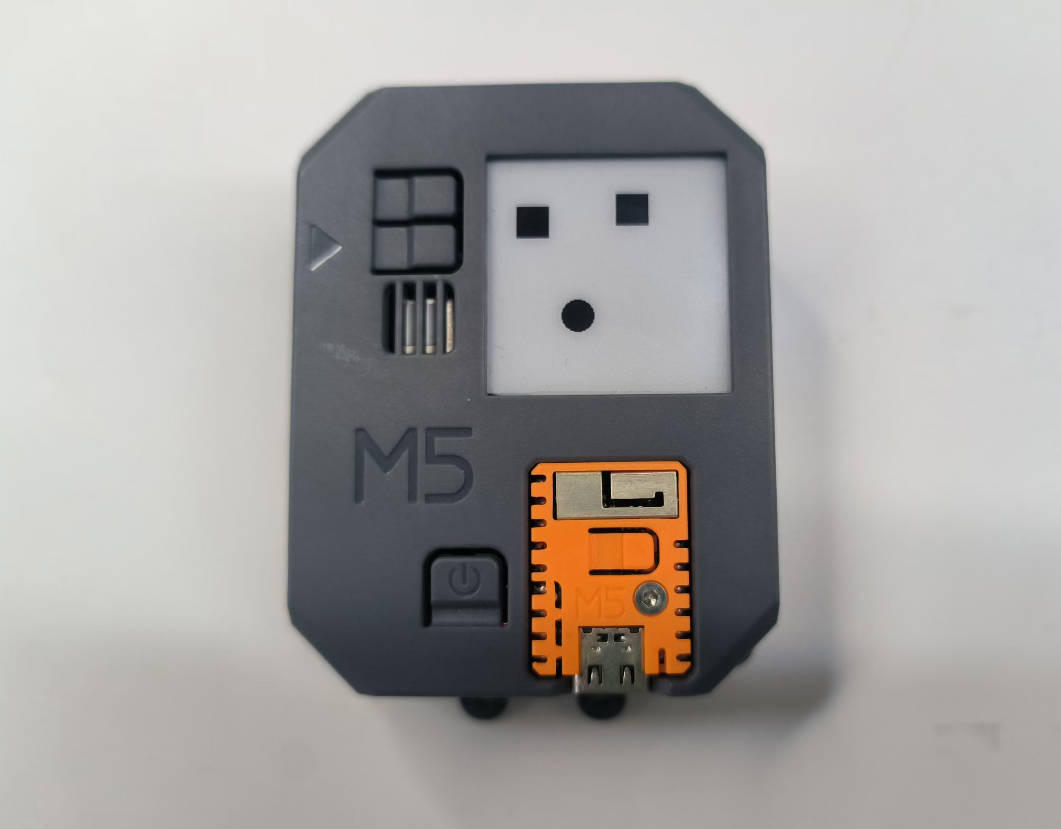Air Quality: Flash Firmware & Run Code
1.Preparation
Refer to the UIFlow2 Web IDE tutorial , to learn the basic process of using UiFlow2 and complete the installation of the M5Burner firmware burning tool.
- Log in to register M5Burner, and the device information will be bound to the account at the same time after the device is successfully burned.
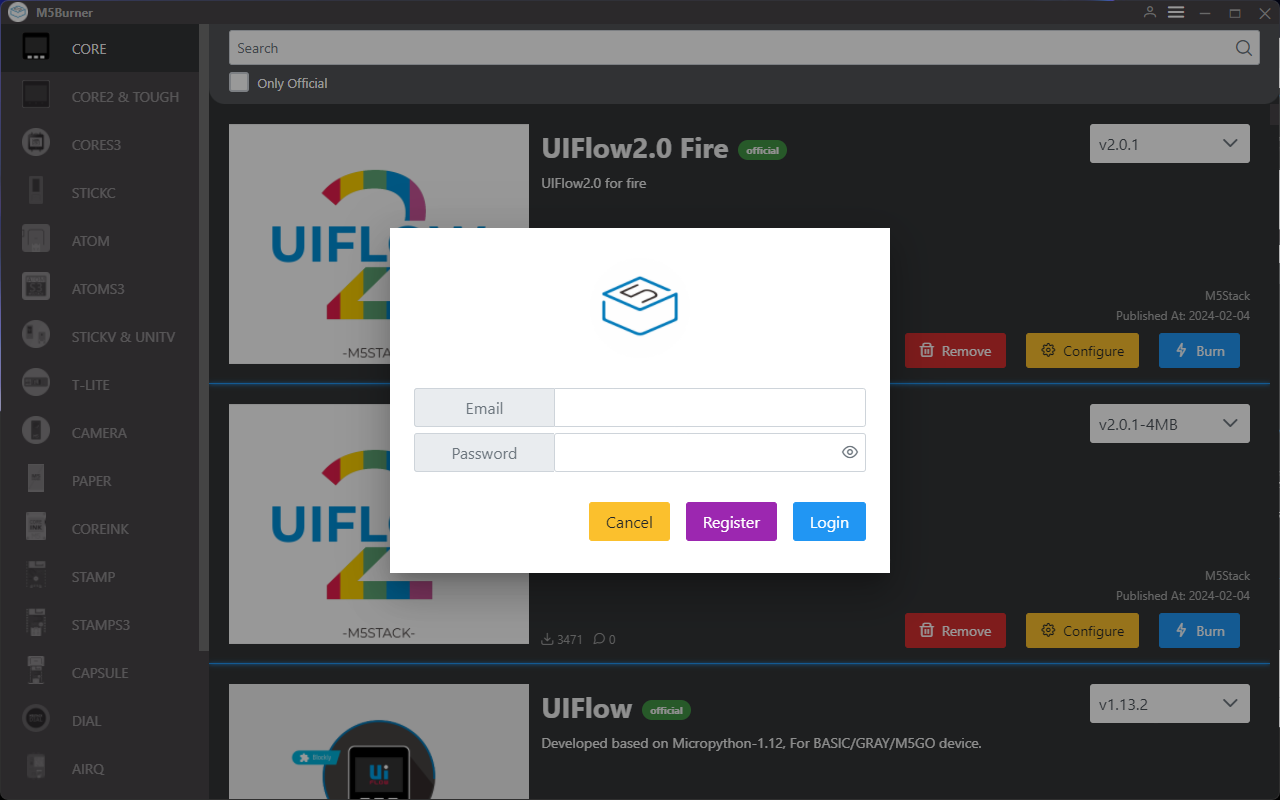
- Download the appropriate firmware in M5Burner, as shown in the figure below.Air Quality
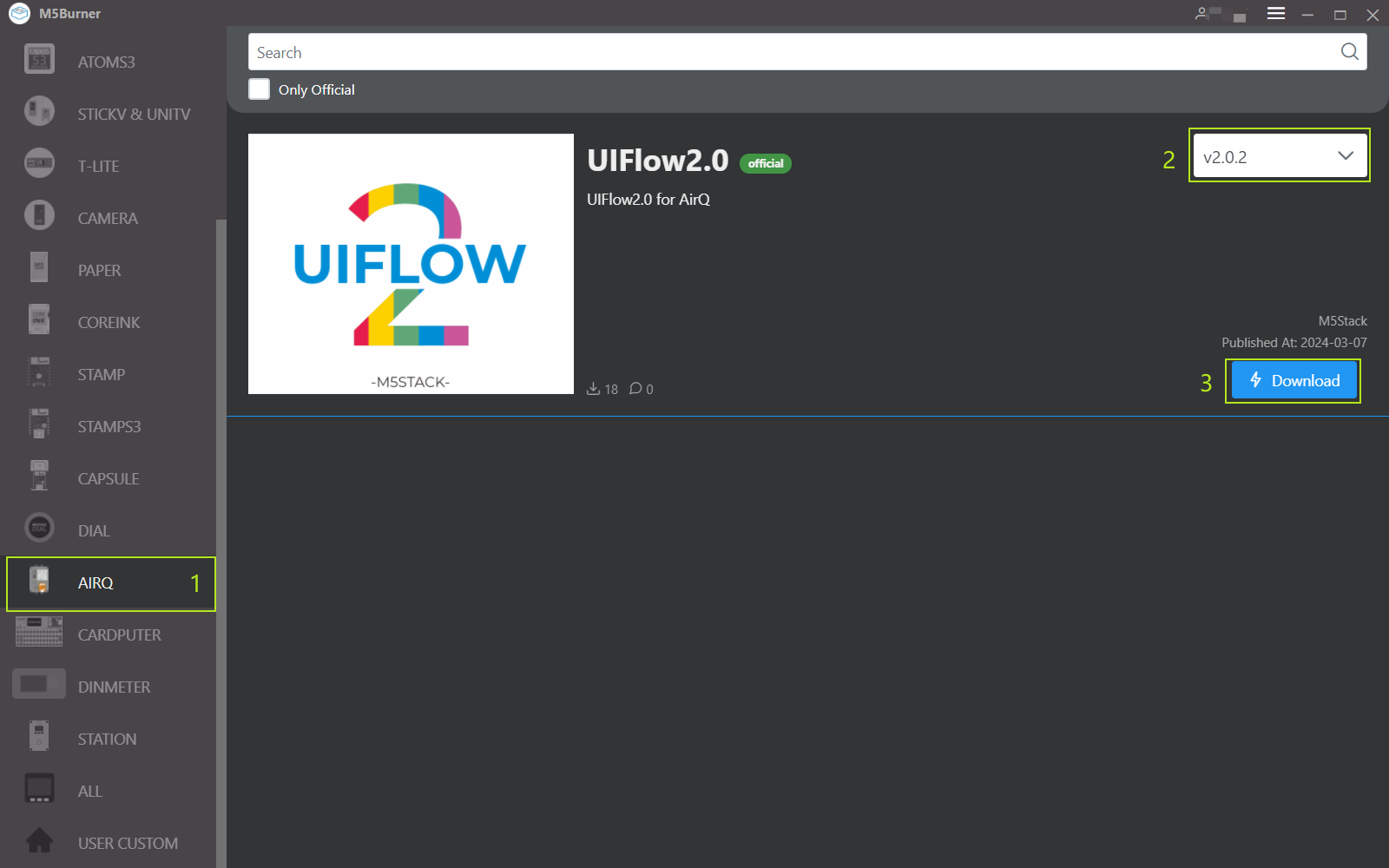
2.Port selection
Connect the device to the computer via a USB cable, click the Burn button of the corresponding firmware in M5Burner, fill in the Wi-Fi information, and select the corresponding device port.
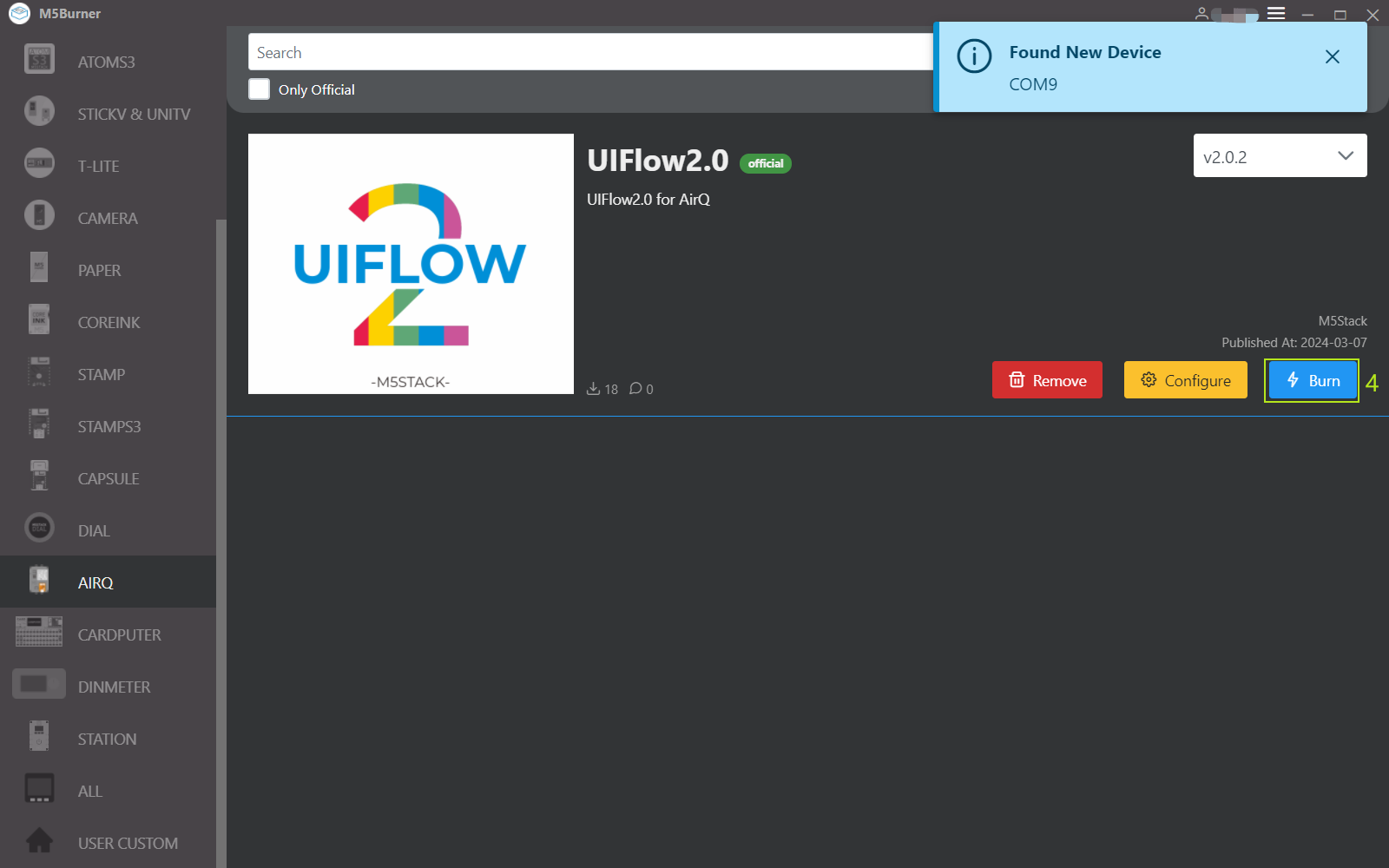
3.Firmware burning
Connect the device to the computer via a USB cable, click the Burn button of the corresponding firmware in M5Burner, fill in the Wi-Fi information, and select the corresponding device port.
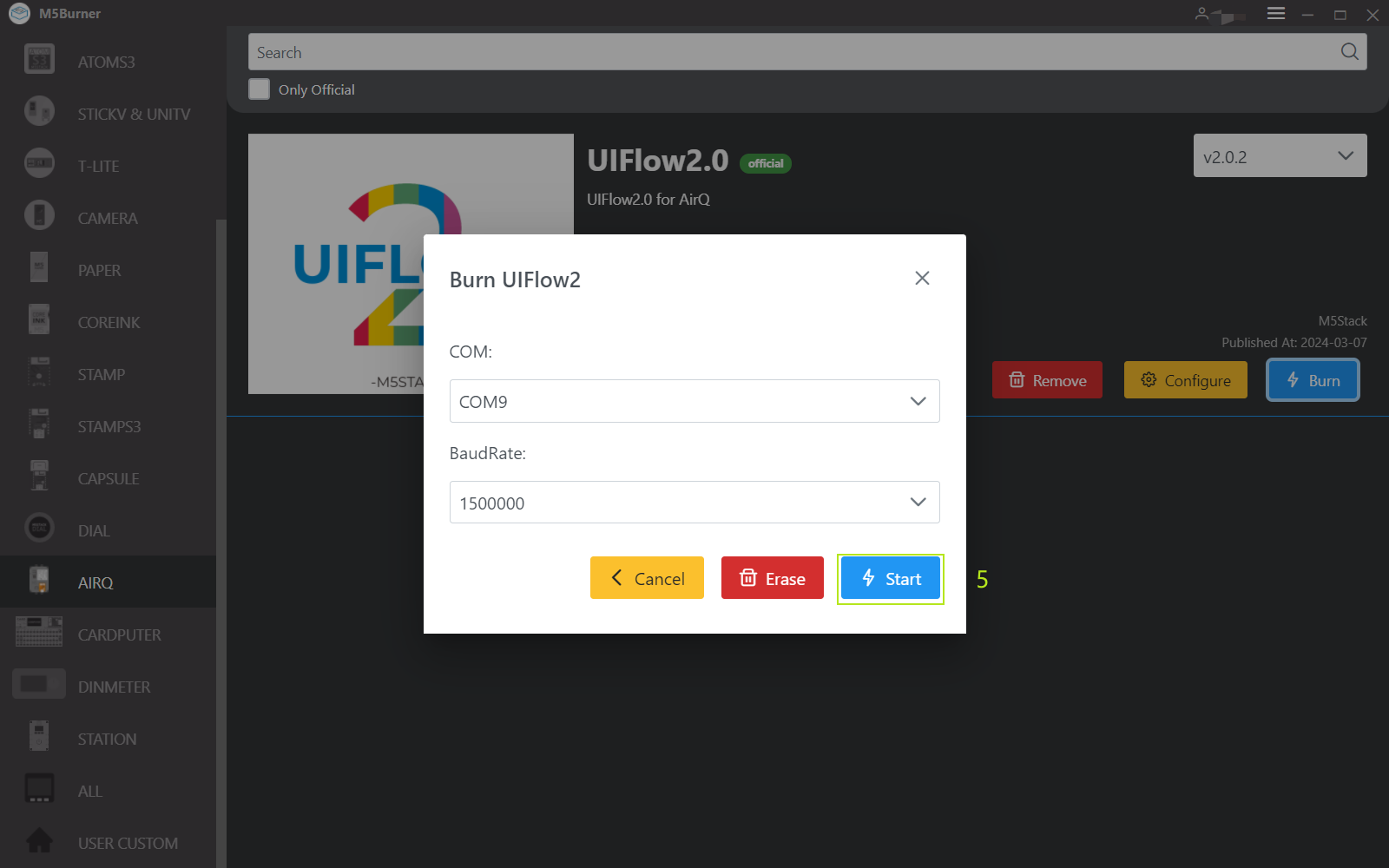
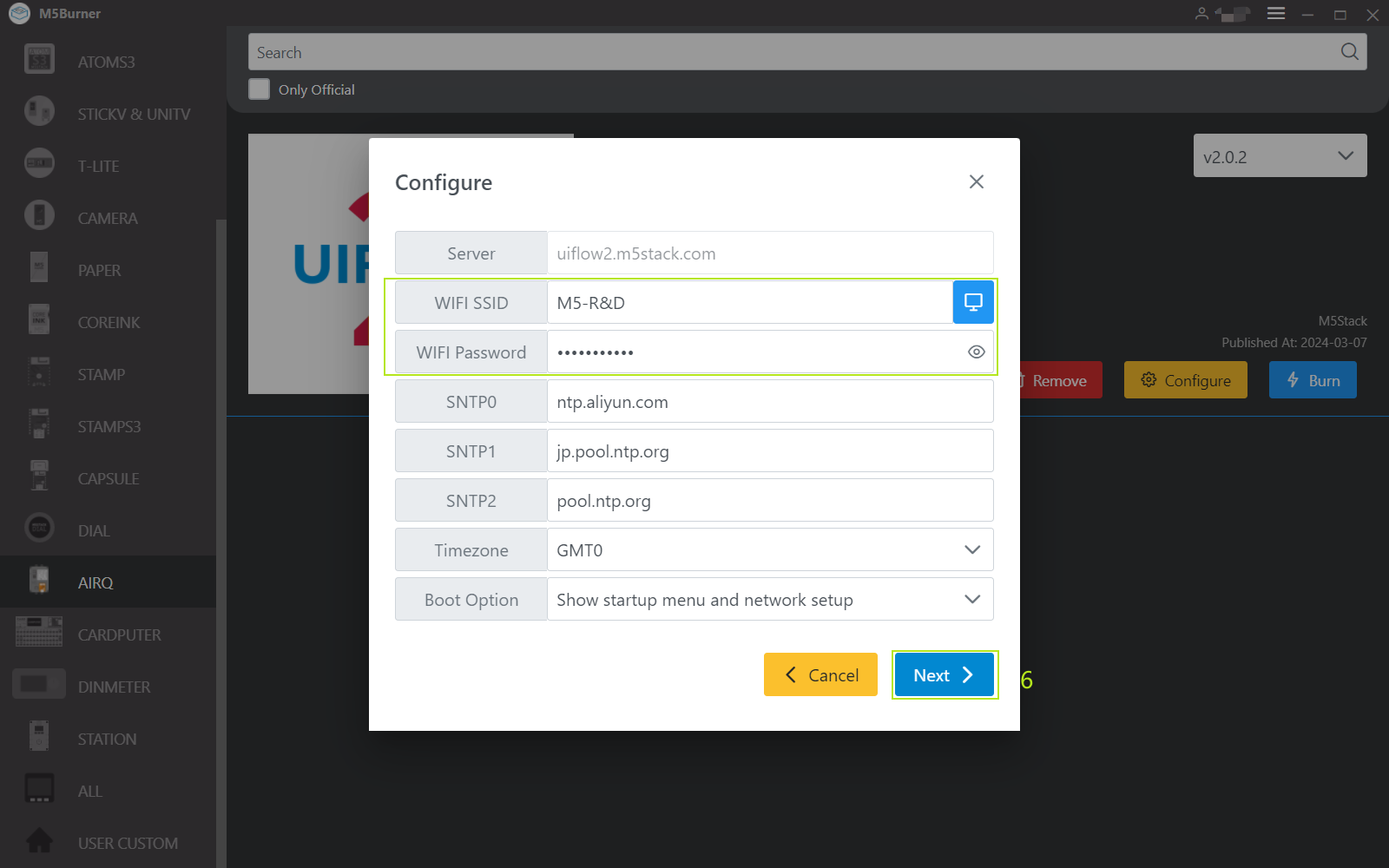
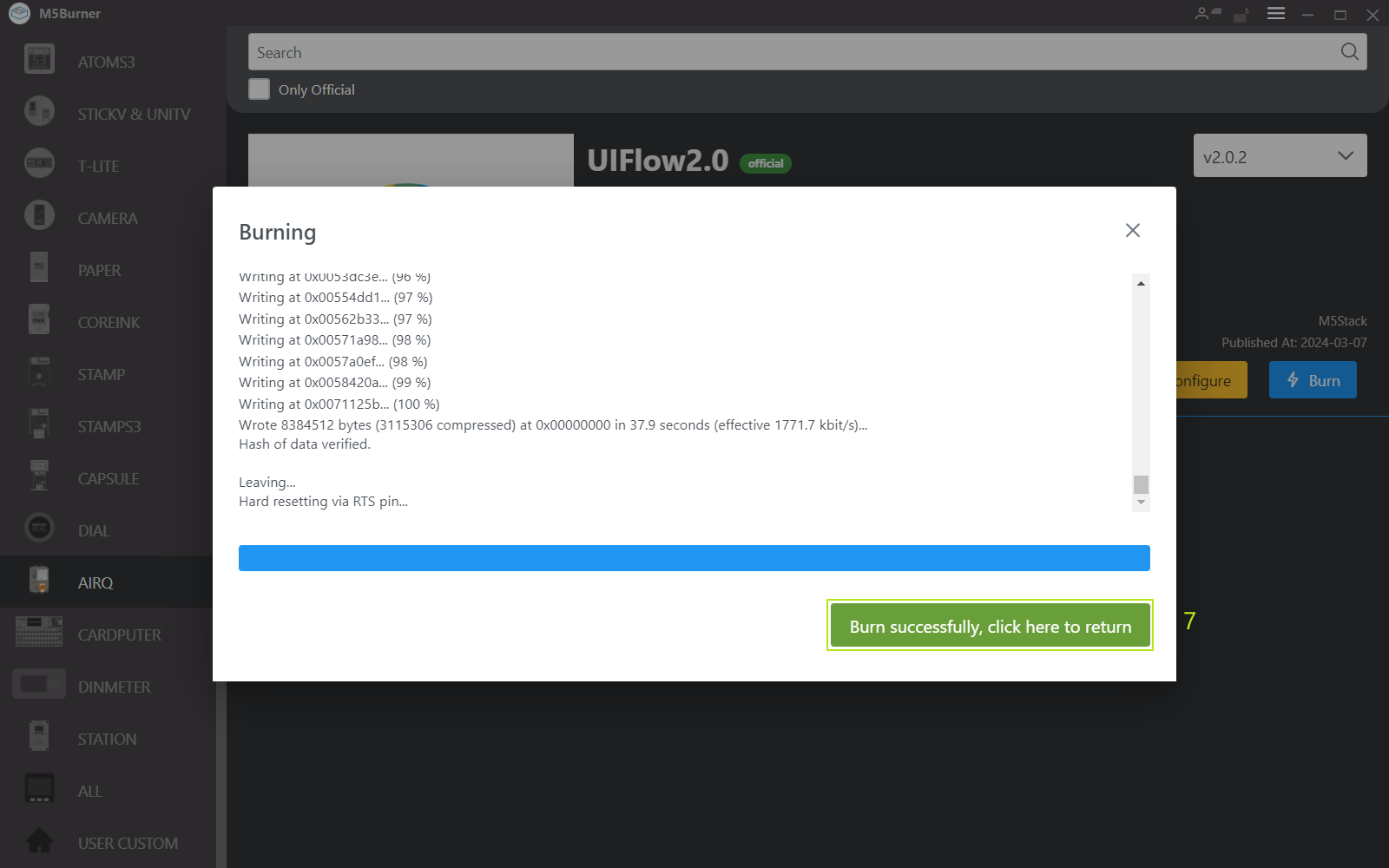
Note: If your device is connected for the first time, you need to bind the device under this account.
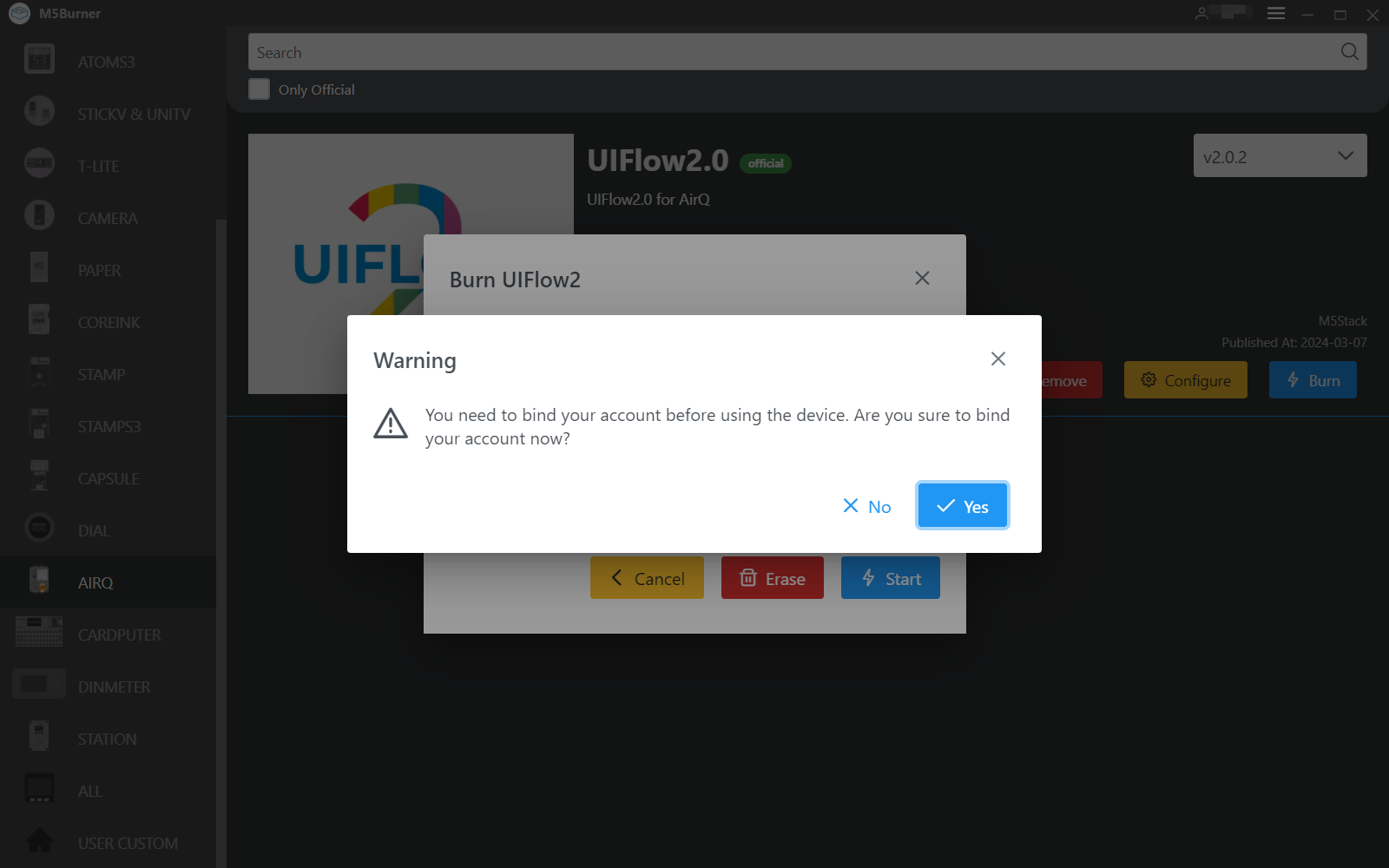

Configuration information:
- COM: Serial port
- audRate: Baud rate of serial port communication
- Server: Indicates the IP address of the server connected to the device
- WIFI SSID / WIFI Password
- SNTP Server
- SNTP0: Alibaba Cloud NTP Server (China)
- SNTP1: Indicates the NTP server pool in Japan
- SNTP2: Indicates the global public NTP server pool
- Timezone: Specifies the time zone
- Boot Option
- run main.py directly
- show startup nemu and network setup
- only net work setup
4.Modify the device configuration
Once the firmware is burned, the device will reboot, keeping the USB connection connected. Using the M5Burner Click Options, fill in the device configuration that needs to be modified, and click. Note: If the burning is successful, you need to restart the device, and if you need to change the device configuration again, you need to modify the programming configuration again.Configurenext
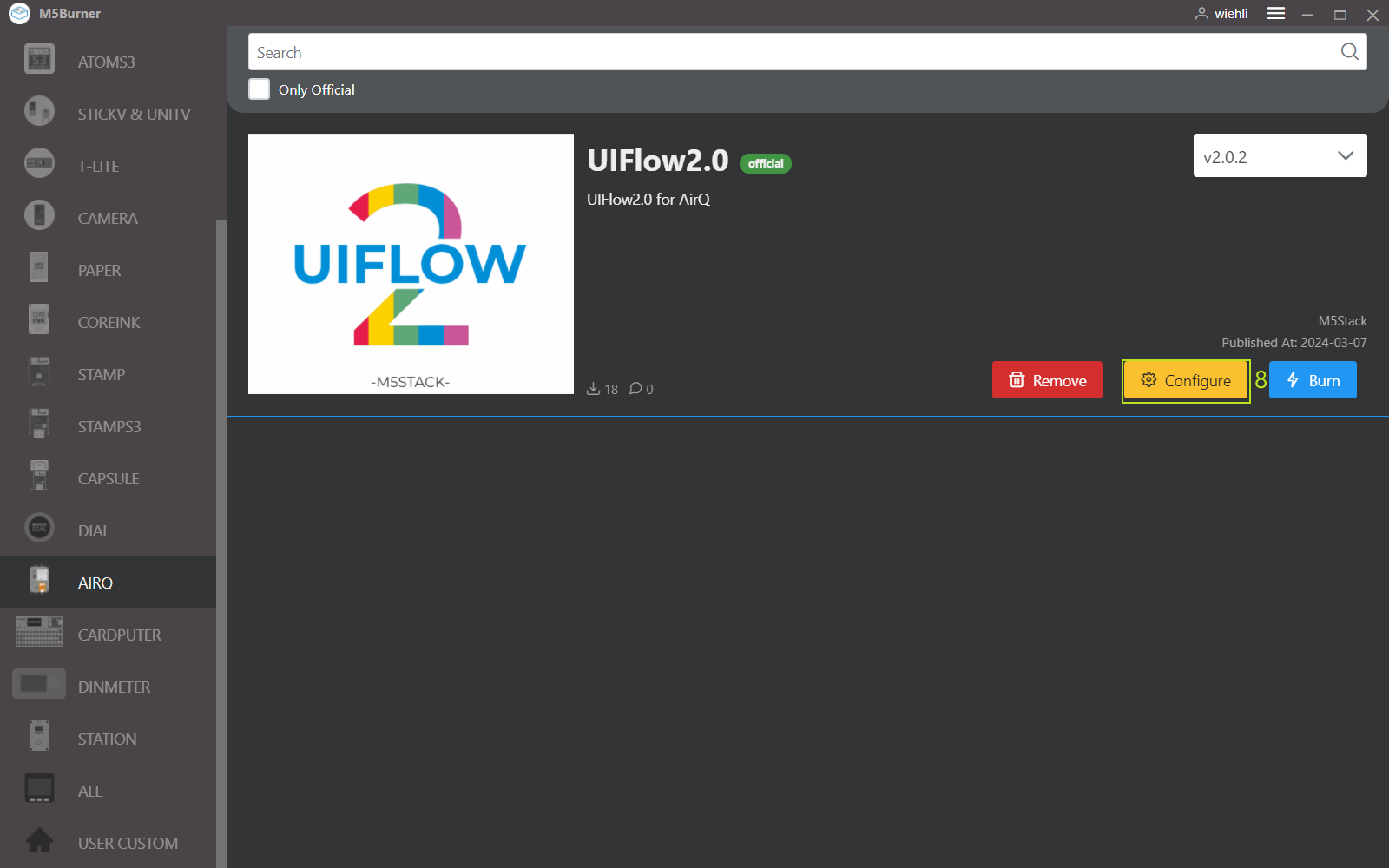
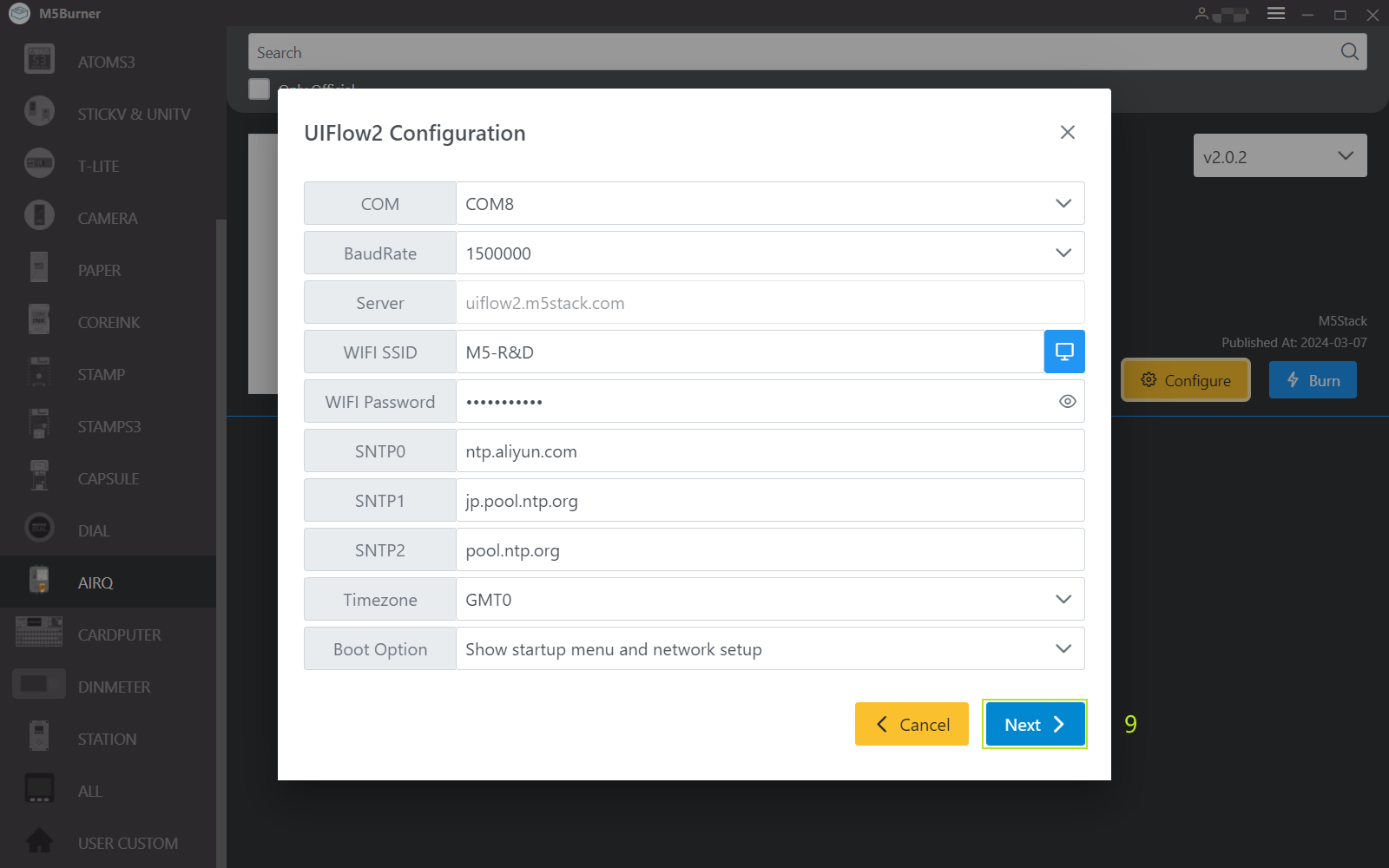
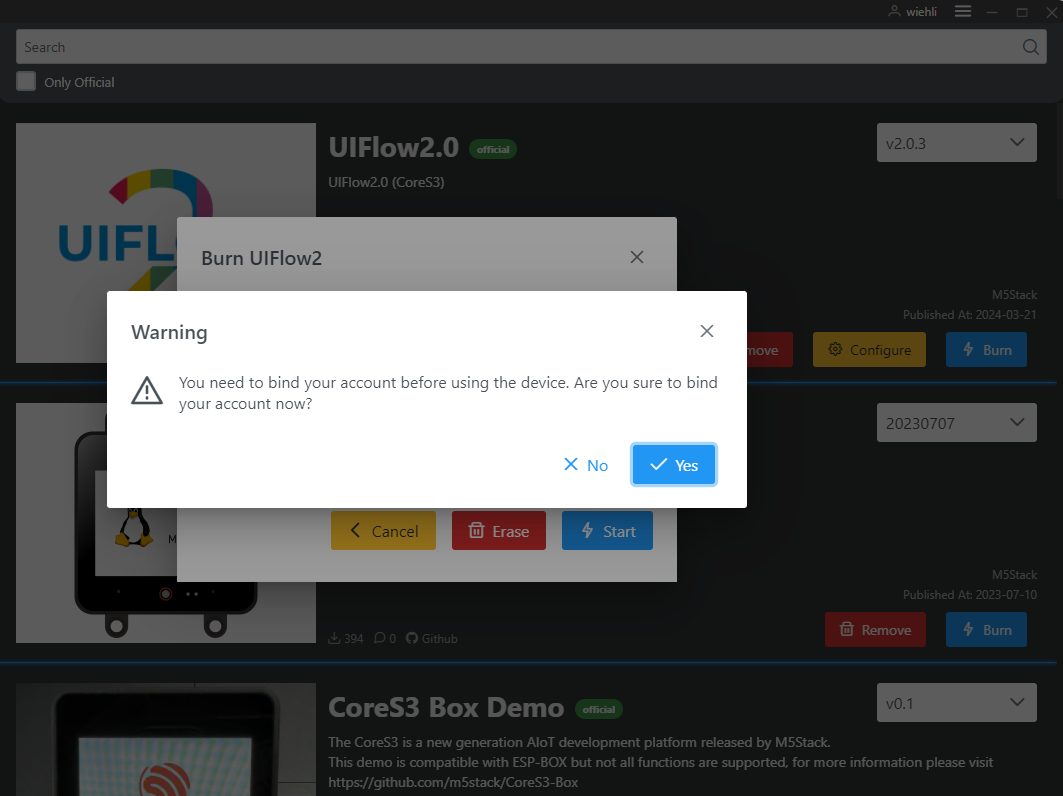
5.Log in to UiFlow2
Click the user icon in the upper right corner of the page to log in to your UiFlow2 system account. Note: The account needs to be the same account as the login, after the account is successfully logged in, under the account, the device connected to the valid Wi-Fi can be viewed by clicking on it, if you need to change the device owner, you need to unbind the relationship between the device and the account.M5BurnerSelect Device

WI-FI MODE
Make sure that Wi-Fi is configured: When burning the program, you need to configure the Wi-Fi and other information in the M5Burner programming program Configure.
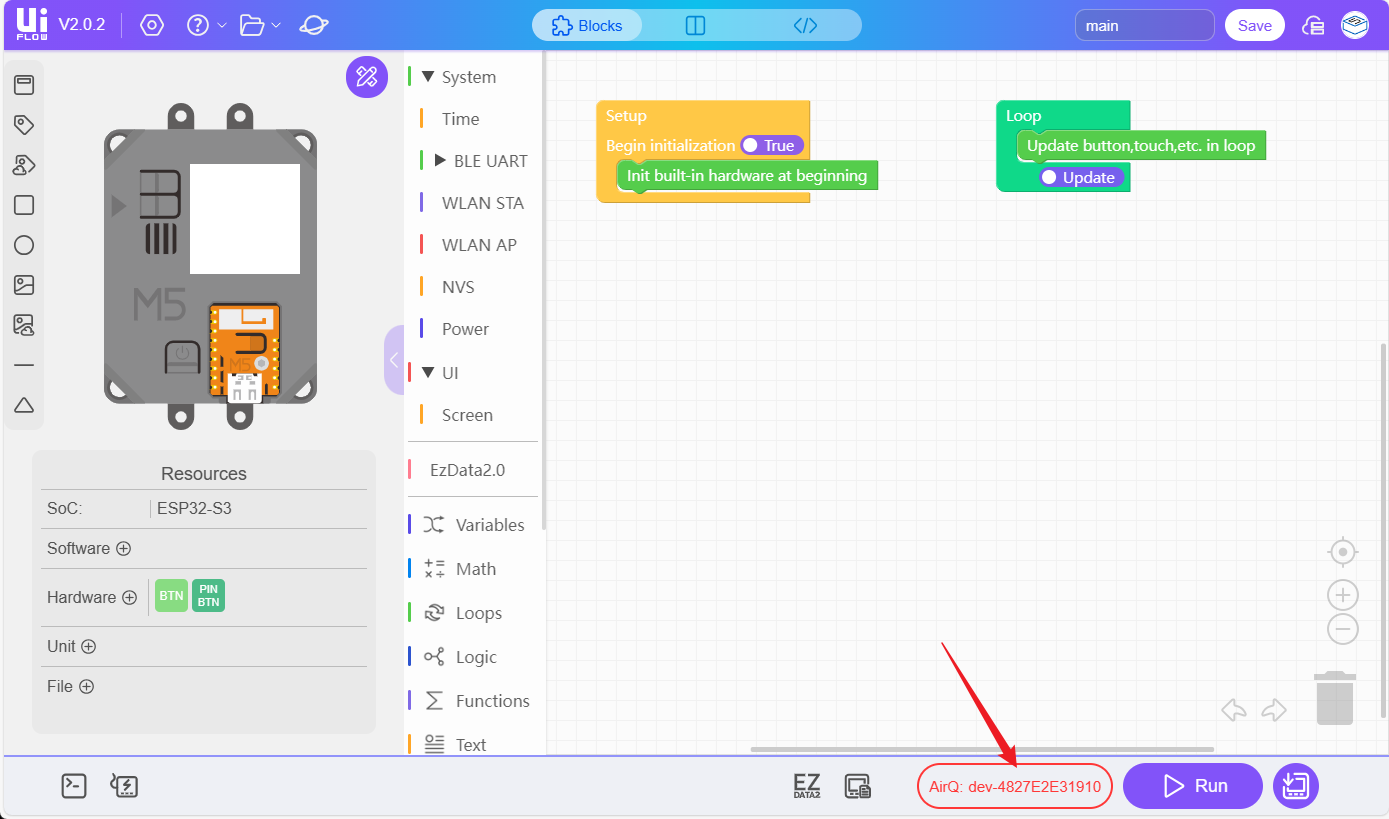
Select an online device.
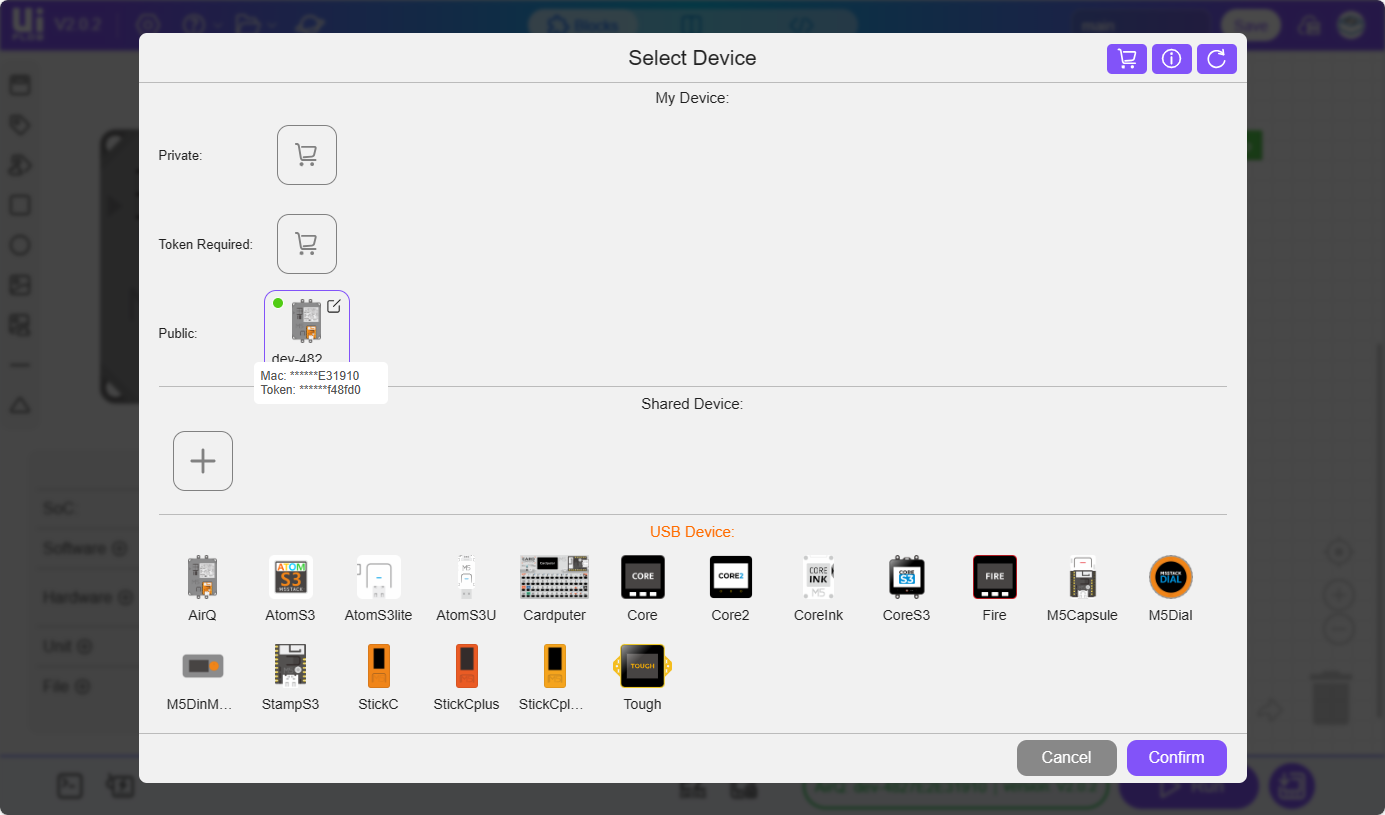
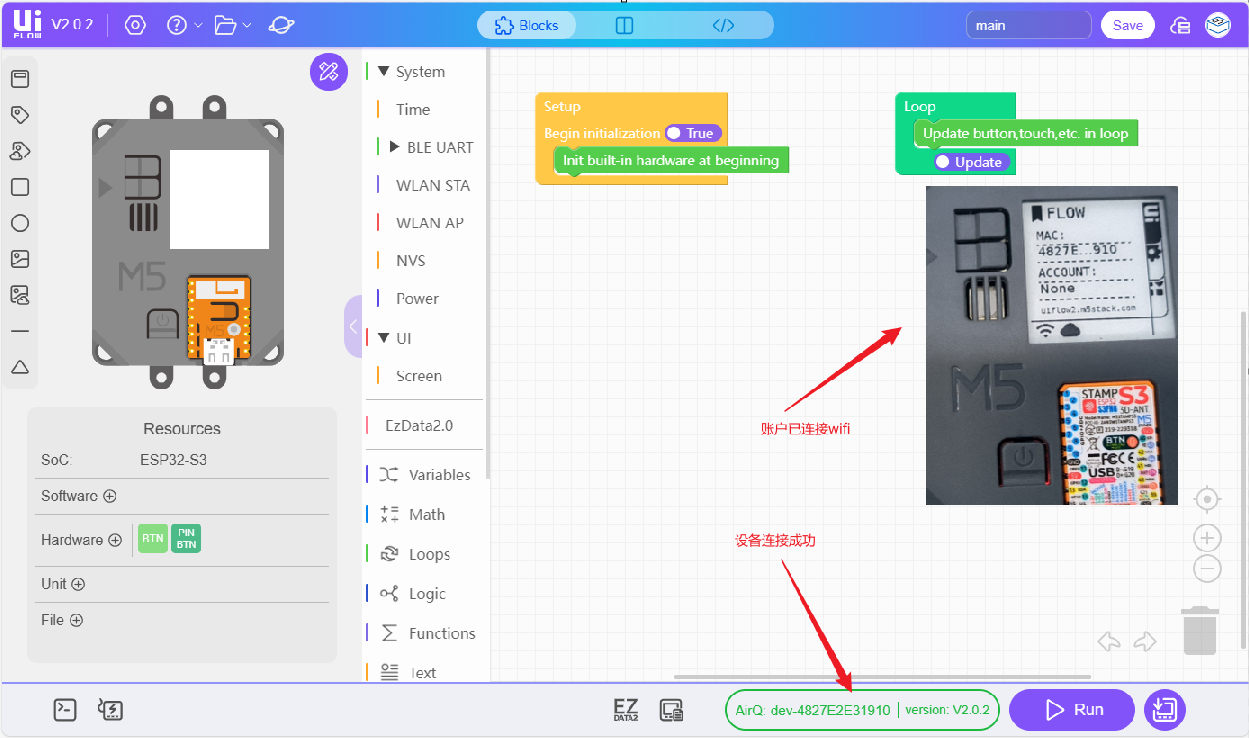
USB Mode
Select the device module to which the USB is to be connected

Air Quality connects to the USB port of the computer, click the buttonWebTerminal
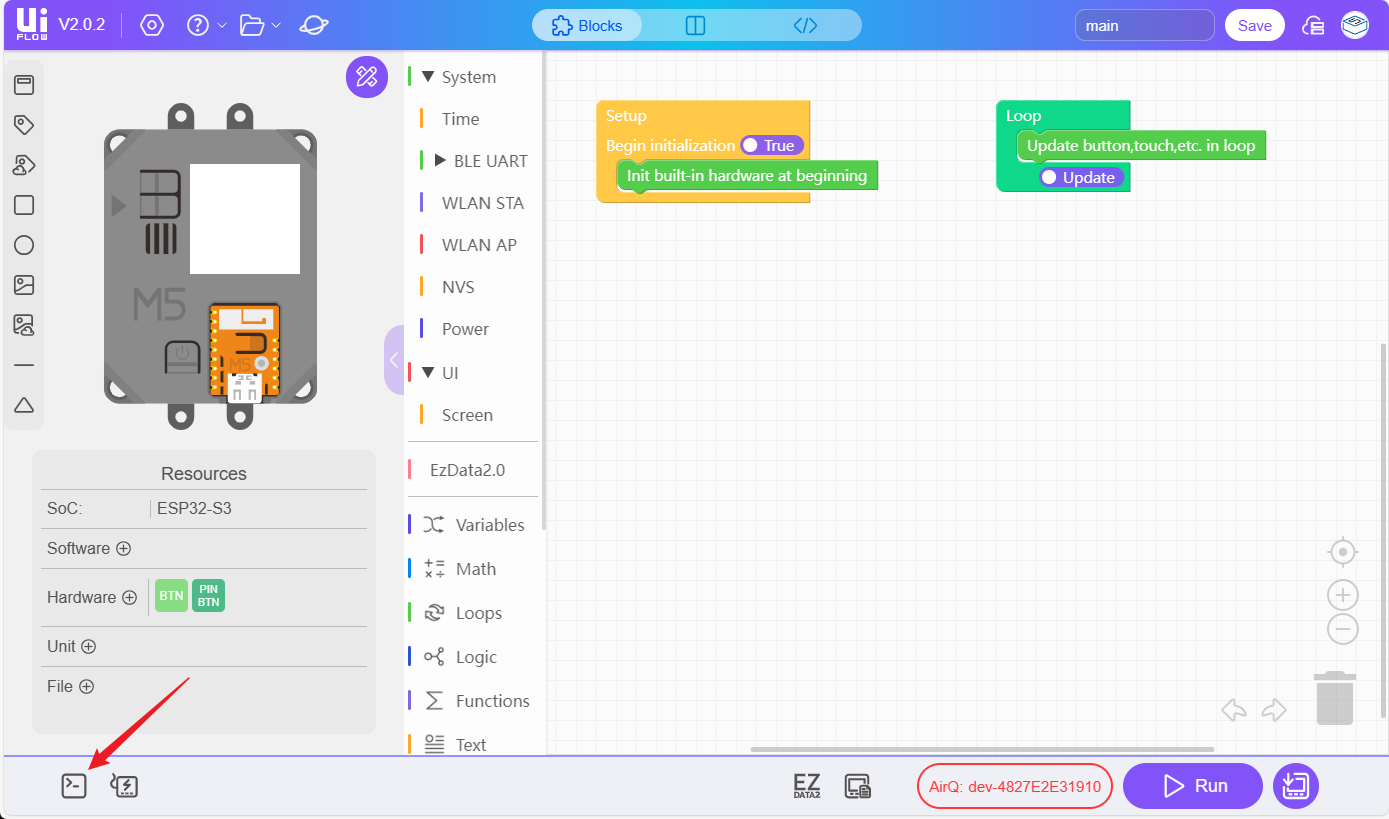
Select the USB-connected device in the pop-up box, click Select, and when the WebTerminal screen shows Connected to Serial Port! Description The USB connection is successful.
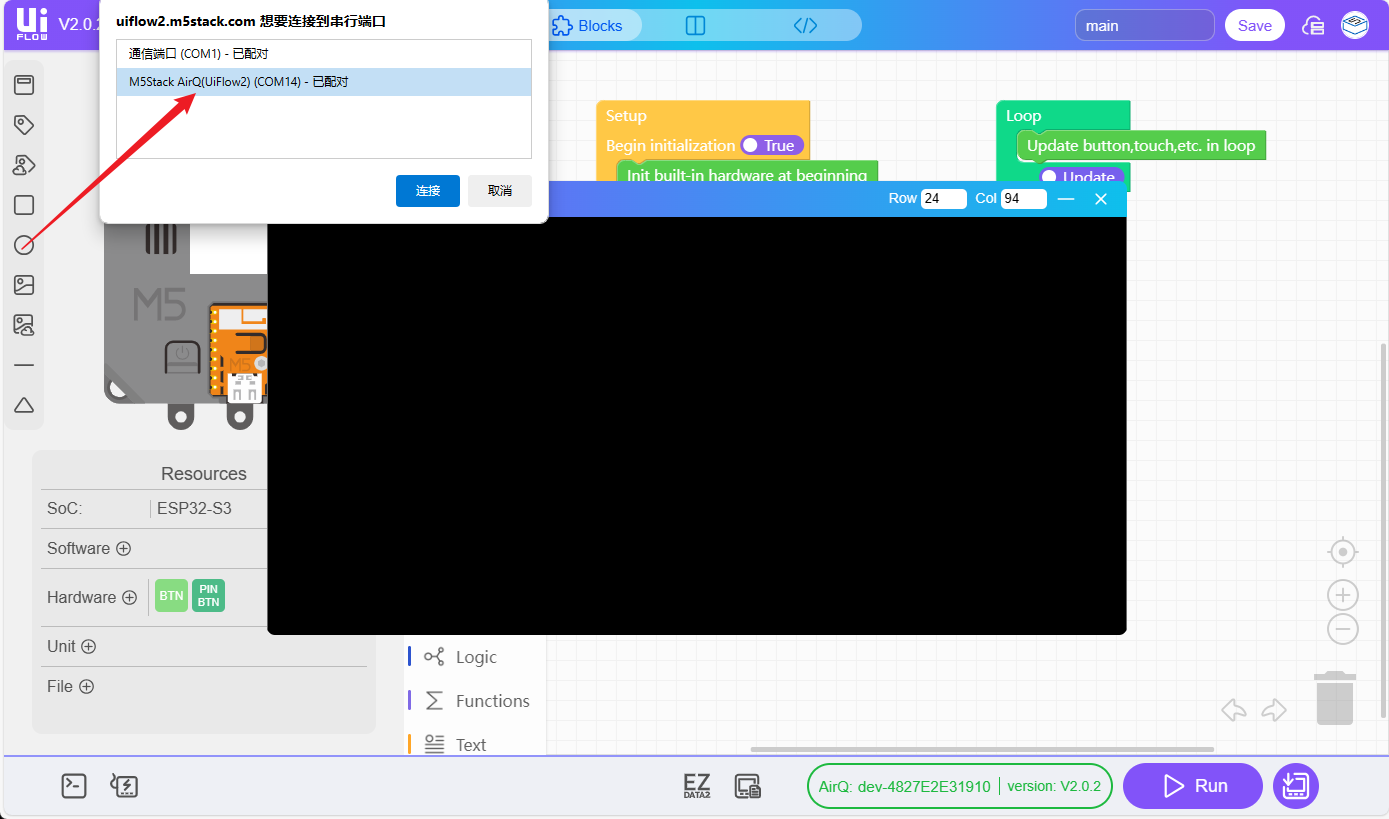
6.RUN
Once you've completed the above steps, you're ready to start programming with UiFlow2.
